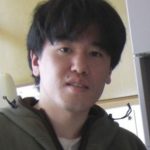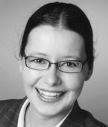Prof. Eiji Haramoto (2019-2025)
Interdisciplinary Center for River Basin Environment
University of Yamanashi, Japan
Former Board Members

Eiji Haramoto is a Professor at Interdisciplinary Center for River Basin Environment (ICRE), University of Yamanashi, Japan. Dr. Haramoto received his Ph.D. degree at Department of Urban Engineering, the University of Tokyo, Japan, in March 2007, under the supervision of Dr. Hiroyuki Katayama. Between April 2007 and August 2008, he worked at Department of Water Supply Engineering, National Institute of Public Health, Japan, as a research fellow of Japan Society for the Promotion of Science (JSPS), and then he was employed at University of Yamanashi as an Assistant Professor in September 2008 and promoted to an Associate Professor in January 2015. His research interests include the development of concentration/detection methods for waterborne pathogens (viruses, protozoa, and bacteria), the spatial and temporal prevalence of waterborne pathogens and their indicators in aquatic environments, the reduction of waterborne pathogens during water/wastewater treatment processes, and Microbial Source Tracking (MST) using host-specific microbial genetic markers. Dr. Haramoto is now Editorial Board Members of Applied and Environmental Microbiology (AEM) and Water (MDPI). He has published ~100 peer-reviewed papers, including 9 in AEM, 6 in Water Research, 9 in Food and Environmental Virology, 3 in Environmental Science & Technology, and 3 in Water Science and Technology. He has supervised some students from Nepal, by participating an international collaborative study, the Science and Technology Research Partnership for Sustainable Development (SATREPS) program of Japan International Cooperation Agency (JICA) and Japan Science and Technology Agency (JST), entitled “Hydro-microbiological approach for water security in Kathmandu Valley, Nepal.”

Dr. Kathleen Alexander (2017-2023)
Virginia Tech, USA
Dr. Kathleen Alexander has been conducting research in East and Southern Africa for over twenty years with a focus on water and health. She has worked for the Government of Botswana as both the Chief of the Wildlife Veterinary Unit in the Department of Wildlife and National Parks and later, as the Ecological Adviser to the Office of the President of Botswana and the Attorney Generals Chambers. She has spent most of her professional life working with local communities integrating scientific approaches with traditional understanding in order to identify interventions for improved rural livelihoods. She is a member of both the World Conservation Union’s Wildlife Health Specialist Group as well as the Commission for Ecosystem Management. She moved to Department of Fisheries and Wildlife Conservation at Virginia Tech in 2007 where she continues to conduct research in her long-term Botswana study site on the dynamics of emerging infectious disease at the human -animal-water interface.
Dr. Lisa Casanova (2017-2023)
Division of Environmental Health, School of Public Health, Georgia State University, USA
E-mail: lcasanova[at]gsu.edu

Dr. Andrea Rechenburg (2013-2017)
Andrea serves as the Executive Manager for the WHO Collaborating Centre for Health Promoting Water Management and Risk Communication at the Institute for Hygiene and Public Health, University of Bonn, Germany where she is responsible for the research and supervision of international research projects (Cameroon, Vietnam) in the field of environmental microbiology in particular water, sanitation and health. Prior to taking her current position in 2009, Andrea served as a researcher and manager for the Water Microbiology Lab at the Institute for Hygiene and Public Health, Bonn, Germany.
Andrea’s research interests include environmental microbiology associated with water, sanitation and hygiene, the microbiological impact of point sources and diffuse pollution on water quality, and the hygienic-microbiological aspects of centralised and decentralised sanitation systems, including water reuse. Andrea has served as a consultant to the World Health Organization on several projects and as an editor of the WHO CC´s Water& Risk Newsletter. Additional professional activities include: Reviewer for Water Science and Technology, Water Supply, International Journal for Water and Health and Anaerobe; Member of the Working Group Hygiene of the German Association for Water, Wastewater and Waste (DWA); Member German WASH network; Member WHO Task Force on Surveillance and Task Force on Target Setting and Reporting under the Protocol on Water and Health and; Member International Water Association (IWA) Specialist Group on Health-Related Water Microbiology).

Dr. Christobel Ferguson (2013-2017)
Christobel is the Manager of the Water Sciences Group within GHD. She manages a team of scientists and engineers that provide technical advice on water resource management and aquatic ecology to clients in the water, environment and mining industries. She has more than 20 years experience managing environmental research projects and has presented and published widely on water related microbiology, and in particular modeling pathogen fate and transport in water catchments.
Christobel was a board member of the Australian Water Association from 2005 to 2009 and is currently a Co-Convenor of the AWA Catchment Management SpecialistNetwork. Christobel previously held Adjunct positions at the University of NSW and the Australian National University. Christobel is a reviewer for a number of Water and Environmental Journals and has served on many expert panels for Water Utilities within Australia and for international water research agencies including The Water Research Foundation and the Water Environment Research Foundation. She is a graduate member of the Australian Institute of Company Directors and a member of the International Water Association.

Dr. Georg Reischer (2013-2017)
Georg Reischer studied Technical Chemistry at the Vienna University of Technology and graduated with a masters degree in Biochemistry, Biotech-nology and Microbiology. He did his PhD with Andreas Farnleitner at the same University specializing in microbial source tracking and environmental molecular diagnostics. In recent years his research interests broadened to intestinal microbiology, next generation sequencing and applied bioinfor-matics. He is currently a senior scientist at the Farnleitner Lab and member of the Inter-University Cooperation Center Water&Health in Vienna, Austria.

Dr. Orin Shanks (2013-2017)
Dr. Orin C. Shanks is a Research Geneticist at the United States Environmental Protection Agency in the Office of Research and Development, Microbial Contaminants Control Branch. His primary role is to supervise a molecular research laboratory specializing in the application of DNA-based molecular technologies for environmental microbiology. Projects focus on the development, validation, and implementation of molecular methods. Other research activities utilize next generation sequencing and computational biology to elucidate the influence of animal host age, diet, and biogeography on the shedding of fecal indicator bacteria.
Dr. Shanks is a U.S. patent holder for several DNA-based technologies and is currently working with the U.S. EPA Office of Water to develop official standardized operating protocols for human-associated fecal source identification technologies. He is an active member of the International Water Association and the American Society for Microbiology and enjoys collaborating with scientists worldwide. Dr. Shanks received his undergraduate and Master’s degrees from the University of Wyoming and his Ph.D. from Oregon State University.

Dr. Walter Betancourt (2013-2017)
Dr. Walter Betancourt is a Water Microbiologist and Assistant Research Professor of the Department of Soil, Water and Environmental Science at The University of Arizona (UA). His most current research conducted along with Professor Charles Gerba at the UA Water and Energy Sustainable Technology (WEST) Center is focused on three major areas. The first area involves the study of human viruses in recycled water, drinking water, groundwater and surface waters using a combination of improved molecular and cell culture methods to detect and identify pathogenic virus species in these water systems. His second area of research is in microbial source tracking exploring multiple genetic markers present in uncultured fecal bacteria and newly discovered enteric viruses as alternative indicators of human sewage contamination in water sources for irrigation of edible crops. Dr. Betancourt’s third area of research is focused on the study of waterborne protozoan parasites to gain thorough understanding of microbial water quality appropriate to protect public health applying the principles of microbial risk assessment. As a Scientist, Dr. Betancourt recognizes the importance of conducting collaborative research to spur new scientific discovery for the protection of the environment and human health embracing the principle of “one world, one health”.

Dr. Celia Regina Monte Barardi (Brazil) (2015-2019)
Celia Regina Monte Barardi got her Ph.D. in Biological Sciences (Molecular Biology) at the Federal University of São Paulo (UNIFESP). She is Full Professor of the Microbiology, Immunology and Parasitology Department at Federal University of Santa Catarina (UFSC), where she teaches Immunology and Virology and also at Biotechnology and Biosciences post graduation program at UFSC. She is a research productivity fellow at CNPq. She had two post-doctoral internships experiences abroad: Mcquarie University, Sydney, Australia and University of Barcelona, both in Environmental Virology. She was vice-president of the Brazilian Society of Virology at the bienium 2014-2016. In September 2015, during the 18th WaterMicro held in Lisbon, she was indicated by her international scientific peers to compose the scientific board of the group Health Related Water Microbiology affiliated to the International Water Association (IWA) at the 2015-2019 quadrennium. Her projects are focused on Environmental Microbiology, with emphasis on Virology studying contamination of water, sediment and bivalve molluscs aiming disinfection and/or reuse.

Dr. GwangPyo Ko (South Korea) (2015-2019)
Dr. Ko is the director at Center for Human and Environmental Microbiome, and professor at Seoul National University. Dr. Ko received Ph.D. degree from Harvard University, and did post-doctoral training at the University of North Carolina at Chapel Hill. He was a faculty at University of Texas HSC at Houston prior to joining to Seoul National University in 2005. His research has been focused on critical contemporary research needs in enteric viruses and microbiome. He is currently working as a director of the norovirus related projects, so called NOROTECL, which is funded by Korean FDA. In this project, he and his colleagues are 1) to perform the surveillance and microbial source tracking of norovirus in sea and surface water, 2) develop novel diagnosis and control techniques, and 3) development of small animal models for human norovirus. Dr. Ko’s group developed and identified the microbiological molecular markers through high through sequencing techniques and other novel techniques. The success of his research accomplishments is reflected in his record of scholarly publications in the peer-reviewed scientific literature, with more than 100 peer-reviewed articles.
Water-Related Disease News
Recent Posts
- Journal of Water and Health, Volume 23 Issue 5, 1 May 2025
- Journal of Water and Health, Volume 23 Issue 4, 1 April 2025
- Genomic insights into chlorine resistance of a Mycobacterium sp. strain isolated from treated wastewater effluent
- Modelling the combined impacts of climate change and socio-economic development on waterborne pathogen transport
- Temporal dynamics of class 1 and class 3 integron pools in treated wastewater
Archives
- June 2025 (16)
- May 2025 (7)
- April 2025 (3)
- March 2025 (5)
- February 2025 (12)
- January 2025 (9)
- December 2024 (4)
- November 2024 (15)
- October 2024 (2)
- September 2024 (10)
- August 2024 (12)
- July 2024 (8)
Annual archive
Categories
- Featured Publications (882)
- Jobs (47)
- Events (61)
- Awards (9)
- HRWM News (129)
- Projects (106)
- IWA News (10)
- Water-related Disease News (11)
Recent Comments